The day that Western war propaganda failed
Russia says it is pulling back a number of its soldiers from near the Ukrainian border, however, extensive military drills continue, but some units are going back to their bases.
The Ukrainian Prime Minister says that they have managed with their partners to deter Russia from further escalation. In contrast the Russian Foreign Ministry spokesperson says that the day will go down in history as the day that Western war propaganda failed.
NATO Defence Ministers are due to hold a meeting here at NATO headquarters in Brussels and there is speculation that they will actually agree on basically expanding NATO infrastructure further east, which has the potential, of course, to rack up tensions even more and to provoke Moscow.
Also tomorrow, {the} European Parliament, due to be a lengthy debate in the European Parliament tomorrow, Wednesday, on this very subject, running for three and a half hours.
It is anticipated, of course, there will be a lot of anti Russia rhetoric, but also a lot of EU lawmakers who believe that really we have pushed Russia a bit too far and we're seeing the results. And even earlier today there was a debate in the parliament on EU defense. And the point was made that while the West is accusing Russia of ... being on the brink of breaching international law with a potential invasion into Ukraine which Moscow denies that's the intention.
There's hypocrisy there because we see, time and time again, breaches of international law, for example, the point was made in the parliament today, the fact that so many arms are built here and sold that are used, for example in Yemen, so there is a great deal of hypocrisy.
Anthony Blinken, you'll remember, the US Secretary of State last week also talked about Russia cutting gas supplies to Europe. And you know, the analysts I have spoken with are saying this is a very unhelpful type of language, especially when it's completely untrue.
Russia has fulfilled all its contracts, Gazprom has fulfilled all this contracts with Europe, and yet you have this type of language which creates a perception in the public mind that, you know, demonizes Russia, which again, isn't very helpful in terms of how Vladimir Putin and authorities in Russia could respond to the overall crisis.
So, again, the big developments here in the coming days I think will be the NATO Defence Ministers meeting and also the big debate that we're anticipating in the European Parliament.
Jerome Hughes, Press TV, Brussels
Both the US and NATO have been talking about the inevitability of a Russian invasion, is Russia going to invade Ukraine?
It's a complex question. First of all, the United States has maintained, repeatedly, that Russia was about to invade Ukraine since 1992.
They have maintained, repeatedly, since the US backed coup in 2014 that Russia has invaded and is occupying parts of Ukraine they refer sometimes to Crimea, sometimes to the Donbas region.
They have never presented any real evidence to support any of this to the public.
We see the kind of 'evidence' that they use in making the assessments that they make public, on display at the State Department a week or so ago, where Mattley from the AP, and a couple of other people in the pool there, by the way, who were generally fairly docile in the face of some of the most absurd things that come out of the State Department, really pressing on the point of evidence for the latest claim that there was going to be a false flag event and an invasion follow on in Ukraine.
So Russia is confronted with the amassing along its borders, from the Baltic to the Korean peninsula now, of American military assets, including all kinds of anti missile hardware, which could perhaps neutralize their strategic, you know, mutually assured destruction defense, neutralize that entirely, of leaving them open to a first strike by the United States of men and materiel up at the borders, militarized states in the bordering states in the Baltics, for example. And in Poland, the borders militarized in all of those places. In Estonia, they announced a week ago that provisions had been made another expeditionary force and shock troops of 5000 or something to be outfitted and ready for action.
Ukraine is amassing its own military, such as it is, and the Azov and the other Stormtrooper battalions, basically, along the eastern border where the Russian Ukrainians live, and their artillery in violation of the Minsk agreement.
Russia is looking at being invaded, and instead of it being from Germany as it was in 1941, with Operation Barbarossa, it's pretty much at the point with the exception of Belarus, which they failed to take last December, almost at the fullest expression of Hitler's invasion.
That's where they would be beginning. So for them to put their defenses up against that line, the US is treating that as aggression. I don't know how they're going to counter it.
If they start seeing movement in the backfield they’d be insane to not "invade in order to break up the invasion force before it has a chance to sweep across the country".
I'm scared really, it looks very dangerous.
Don DeBar, Radio Host and Journalist
The British Prime Minister, Boris Johnson, said on Monday that the invasion of Ukraine could take place within 48 hours.
So what's the truth behind this 'imminence of invasion' that the US and the UK have been talking about recently?
Well, the United States is, in standard, in standard form, speaking out of both sides of its mouth. The United States maintains its principal position that Russia has already invaded Ukraine and has already seized possession of the Crimea, even though that was done by referendum.
The United States does not recognize that. And the United States says that the Russian ethnic resistance to take over from Kiev in eastern Ukraine is a Russian invasion.
So I don't understand how they can say at one time that there might be a Russian invasion and at the same time, simultaneously they say that there already is a Russian invasion. That's point one.
Point number two is that under no circumstances would anything even closely resembling this be allowed by America on its borders. America would have intervened directly, called it a police action, restoring the peace and restoring stability in a neighboring country. They cannot have it both ways.
John Bosnitch, Journalist, Political Analyst
The Ukrainian defense ministers said on Tuesday that he had received no information so far to indicate the possibility of a Russian invasion of the country. Maybe the warning of an imminent invasion of Ukraine is not based on reality and is only hype.
Everyone know what happened as a result of the wars in Afghanistan and in Iraq, which were both based on lies propagated by the US and the UK.
So how do you see the role that the media in the West has played with regard to the crisis over Ukraine?
You reach such a point of unanimity across the media in the US, and I would say throughout much of Europe too with some important contradictions, on something that is so obviously, at least contentious, if not complete fabrication.
From Fox to CNN, to MSNBC, to Pacific or radio or Democracy Now and The Guardian and whatever. So more progressive outlets ... there's a segment in marketing approach to why we are in this problem, but there is a unity of agreement across the board, that Russia is some evil threat that has to be dealt with.
Fox points to Biden; says Biden is too weak to deal with dangerous Russians. MSNBC was pointing to Trump, saying that Trump is too soft on Russia because he's a Russian puppet and everything in between.
Someone somewhere that makes the decisions about how to broadcast the segmented messages to the American public and the world through the US media outlets, which are the largest in the world, they have decided to organize the military and political structures of the US Europe and its allies in Asia into a war mode directed at Russia and there is some indication, including a recently released RAND study concluding that the intent is to force regime change in Russia, that they believe they can do by cranking up this pressure.
On the other side of the coin, President Putin and the Russian Douma by the way with their own message, which almost unanimously like yesterday, or today called on President Putin to recognize the Donbas breakaway republics.
He has said, look, you guys, this is existential for us but we know what happens next. We're not going to have another replay of World War Two. We will fight where we decide to fight if you force a fight. And so, you know, we're looking at a situation analogous to 1962.
We even had a little submarine incident over the weekend that could have escalated into a nuclear war. The United States probing Russian waters with nuclear submarines, but we don't have John Kennedy sitting in the White House.
Don DeBar, Radio Host and Journalist
The role of Western media
Well, being a journalist myself by profession, I can tell you that what was once a lively media has greatly, greatly, descended in quality. I can tell you that there is a kind of groupthink in the media that's imposed from the top down, from the owners of the media, that if you don't conform with the groupthink, you lose your job and that I've seen across, I've seen that across media in Europe, In North America and in Asia.
So I can tell you that the military industrial complex has seized upon the fact that their first weapon in the war is always the media. if they can convince the public that the designated enemy is evil, and then they demonize that enemy, as they have been doing with Russia for decades ... they believe that they can get away with quick short wars.
Obviously, this would never be a quick short war. And it seems to me that the objective of the NATO side is to develop hysteria, allow the hysteria to give a free hand to the Western governments to provoke a Russian response by putting aggressive attack weaponry on the very border of Russia.
And if Russia responds in any way to those provocations, then blame the entire situation on Russia.
And this cannot wash with any educated person because we all know that the coup d’état that overthrew the elected President of Ukraine was run directly out of the US government.
John Bosnitch, Journalist, Political Analyst
Russia has certain demands, it wants NATO to pull back troops and weapons from Eastern Europe. It wants Ukraine not to join the military alliance.
Why is Russia concerned about NATO's eastward expansion?
For the same reason that the USA almost went to nuclear war because the Soviet Union put a couple of dozen nuclear missiles in Cuba, 90 miles away from the US border. You know, it changes the strategic balance to a position where the defending nation or state has a very limited response time to determine whether or not something is an actual immediate threat, or a potential threat.
When you have nuclear weapons, and you're on a five or three or 12 minute, response time, you have an awful lot of that much time to respond. And you can't tell whether or not something coming at you was a nuclear weapon or a flock of birds or whatever. You have your finger on the button in defence, you know it's a dangerous condition.
And this is a condition that does not have to exist, the United States has voluntarily organized the former buffer states, that's what the Warsaw Pact was, buffer states that were negotiated after World War Two, after Germany had, for the second time in the century, invaded Russia and they have swallowed them all up and put in material that now, rather than meaning we're only a week march from Moscow, put nuclear missiles three, four minutes from Moscow, so that whenever someone in Washington calls Putin up and says look, we want you to sign over Roscoe, We want Gazprom to be owned by Standard Oil or whatever, We've got our finger on the button.
If something comes in, they don't know if this is 30 thermonuclear warheads coming into Moscow or a bird, you know, a flock of birds. That's not a place to be able to conduct normal relations from and is exactly the condition which has been imposed on Russia and Russia has the wherewithal to push back and they have indicated that they're going to do it.
And if you look at it objectively, they have given as much space as they could, rather than pushing back when they first moved material into East Germany against [sic] a promise that was given back by the Reagan administration, George Shultz, all of that so a number of Russian officials. They have waited until they're knocking on the door with the most advanced weaponry ever and the largest amount of it that they have faced since Hitler came in.
Don DeBar, Radio Host and Journalist
The US and its NATO allies have not given a proper response to Moscow's demands.
Could this mean that this crisis will continue to simmer as long as those demands are not met?
I think that we're in a situation where, if talking doesn't work, psychological pressure might. I want to just retouch two points here about the so called Cuban Missile Crisis.
Well actually the Soviet deployment in Cuba was a response to a prior NATO deployment of missiles in Turkey, which very few people still today know, were secretly withdrawn in return for the withdrawal of the Russian missiles of the Soviet missiles from Cuba.
So the provocation, even back then in 1962, was on the side of NATO and on the west, and we want to put the shoe on the other foot.
We should remember that in World War One, when the German government merely sent a telegram, just sent a telegram to Mexico offering the return of territories that America had taken from Mexico, the American government rolled into action to declare war on Germany.
If Russia were to respond today to what America has done in [The] Ukraine, staging a coup, sending in advisors and shipping over weapons, we would already long ago have been at war, with Russia directly attacking America.
The Americans do not follow their own principles and their own words; they’re double crossing, not just Russia, but the entire world.
John Bosnitch, Journalist, Political Analyst
The US has supplied arms including javelin anti tank missiles to Ukraine. Germany, however, has refused to provide any weapons at this juncture in time, which Kiev is far from happy about.
How do you see Europe's position, especially that of Germany and France, in this crisis?
People tend to forget even what's happened recently let alone over the last 54 years. There was a real possibility that Germany, even France, were going to have revolutions and the people were going to join the Soviet bloc or make some third way or whatever out of it.
The popular opinion inside Germany, for example, was highly negative when the Reagan Administration introduced cruise missiles into Germany. People there have, particularly 30 - 40 years ago, but even now, you know, a memory of the continent, you know, their countries being devastated by war twice in the 20th century. And the staging of these weapons in their country, they're smart enough, regardless of what even their media says, to understand that those weapons become targets of the Russians, in self defence, in the event of a war.
And so there is strong opposition to the possibility of Germany or France or Italy, these countries among the population being the battlefield for a war between the United States and Russia. And so at the bottom of it you have this percolating, in addition to that, in the United States itself, since the 2020 election.
There was an article in Press TV, actually in Presstv.ir, about the January 6th joint session where the ratification of the election took place. Half the population here that watched that stuff unfold understands that the election, certainly believes, that the election was stolen, they don't see the President as being legitimate ... the other half of the population, thinks that President Trump was legitimate.
Now, generally when you go to war, you go in with united public opinion, which was organized for both Iraq wars and every other intervention the US has taken part in.
That is an impossible precondition to establish now; going against Russia is going to be an entirely different kettle of fish than going in against Iraq, Afghanistan, or you know, the Syrians.
Don DeBar, Radio Host and Journalist
Regarding the concerns expressed by Russia one should not forget what the US as well as the Europeans did to Yugoslavia.
Could this be another reason why Russia is concerned about NATO's expansion?
Absolutely! As a reporter who was here during the bombing and had 16 of my colleagues killed by American bombing of a television station just like your own, I can tell you that the rules of war, for America, have no meaning.
And that means that the entire concept of an International Court of Justice, which they do not recognize, a superpower that doesn't recognize the International Court of Justice means that we are on a knife's edge here where no moral code, no written law, or even a signed treaty, has any validity in the eyes of the American military industrial complex, which just operates the sitting president as a puppet through the Congress.
So I think we're in a very dangerous situation. I think that we are all very, very lucky that a statesman like President Putin is controlling the events here and letting the aggressive NATO side have a good taste of what it feels like to have a Damoclean sword hanging over your head. And that's what the West has been doing to Russia since the end of the Soviet Union.
And I think Russia has to call it end of the game for NATO. And it has drawn the line at the absolute last possible moment. And in that sense, Russia cannot back up on this and the West must ease [off]. That's the way things stand.
John Bosnitch, Journalist, Political Analyst
Iraq won’t allow terror groups to cross border into Iran: Security official
Iran’s security chief: Does America come first or Israel with 500 US soldiers killed?
Iran warns all Israeli embassies ‘legitimate targets’ if Lebanon embassy attacked
IRGC pounds bases of anti-Iran terrorist groups in Iraqi Kurdistan
Iran’s Fattah 2 hypersonic missile nearly impossible to intercept: Report
Another girls’ school targeted in US-Israeli attacks on Iran
IRGC says dismantled US radar in Qatar, attacked destroyer in Indian Ocean
Modi's Israel visit shows morality no longer guides India's foreign policy: Journalist


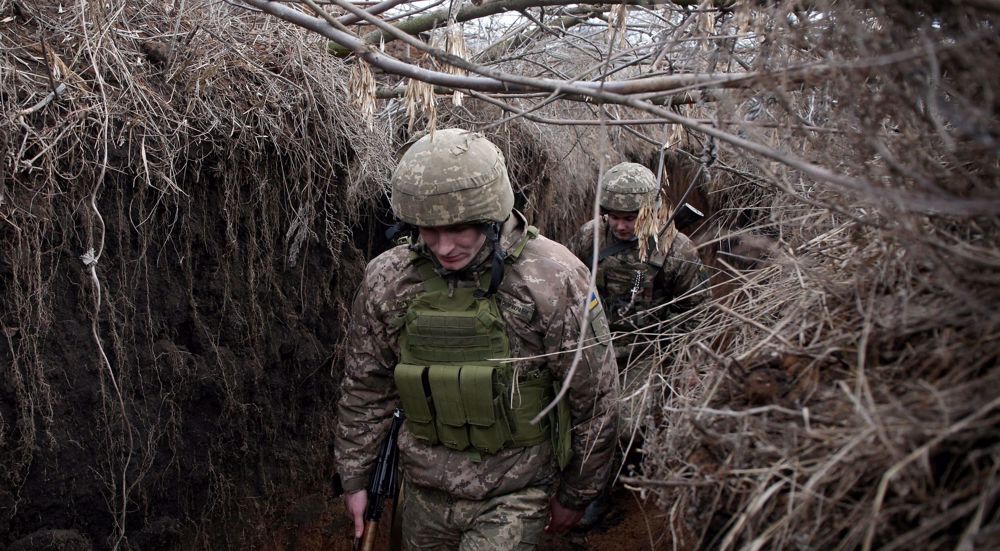
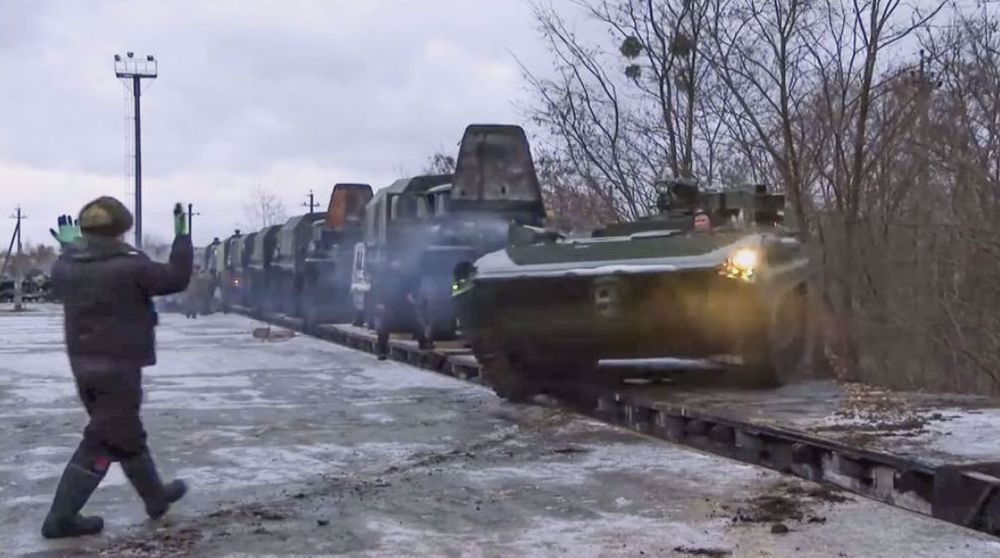
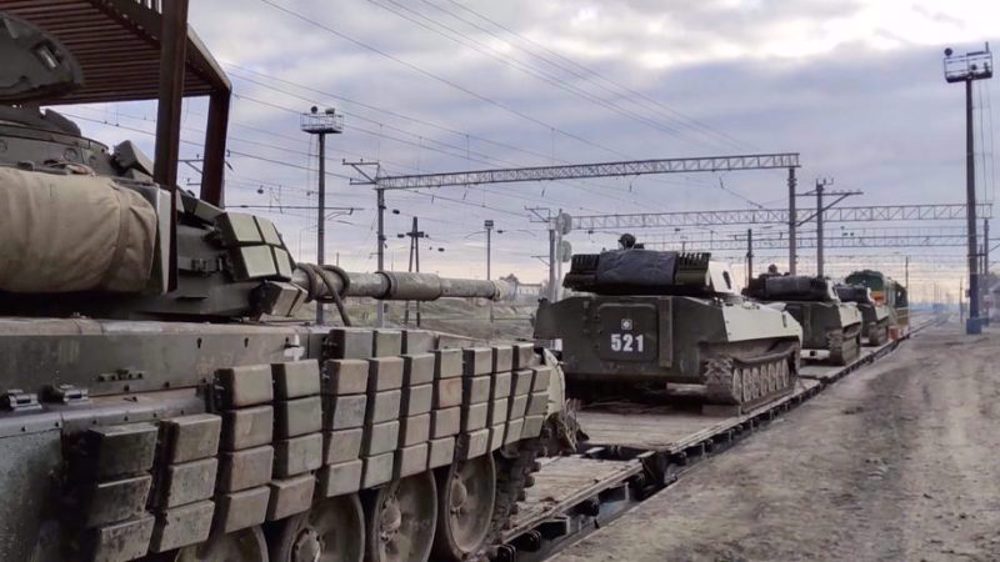
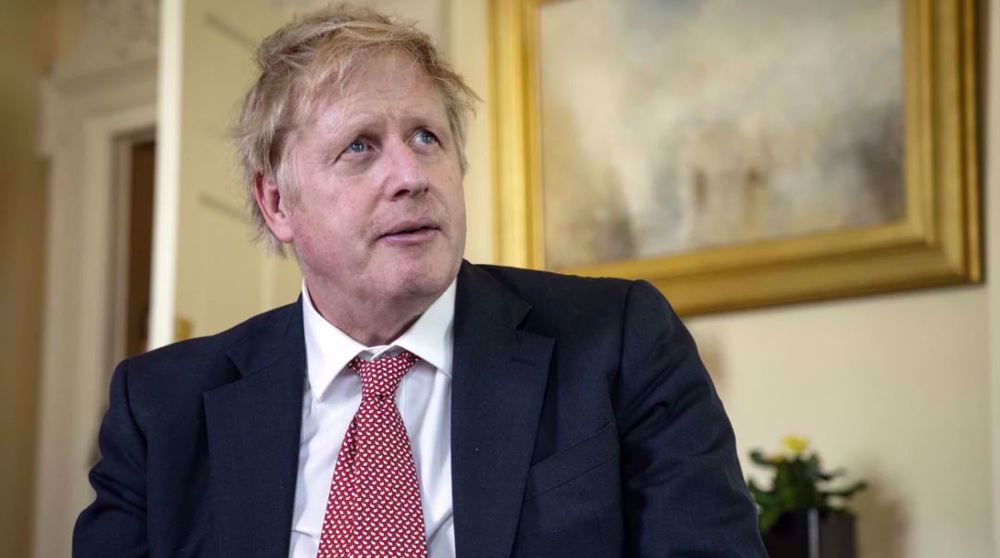
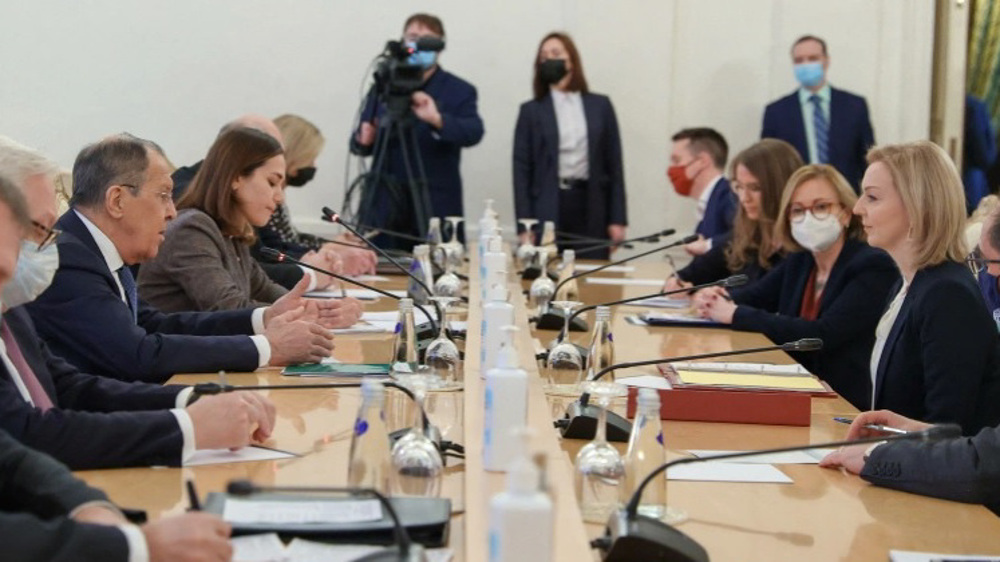
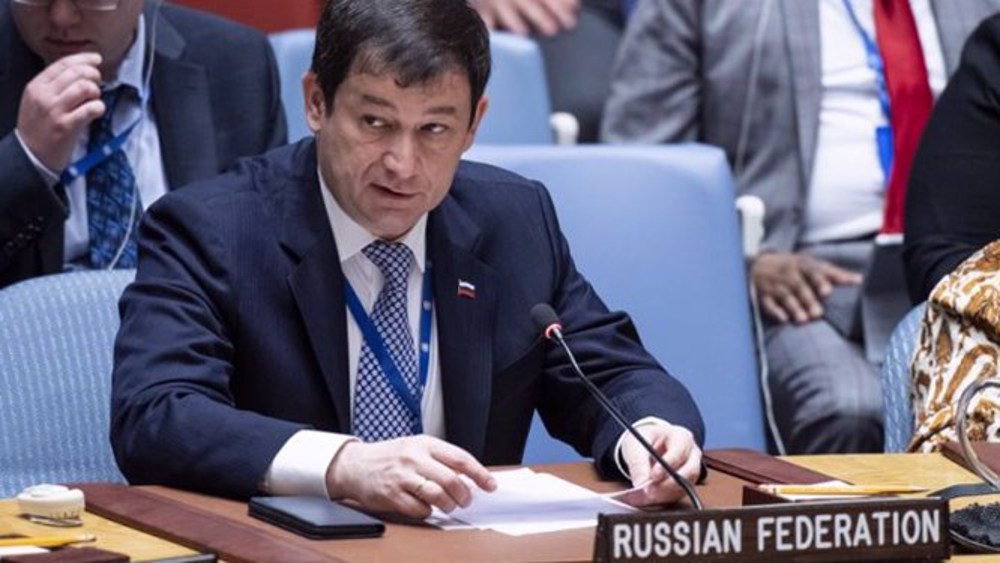
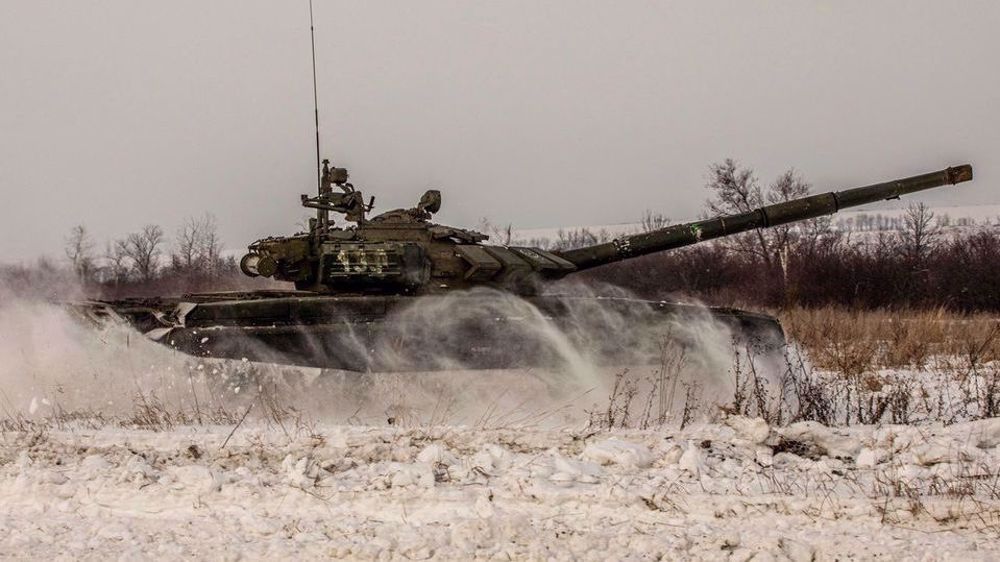
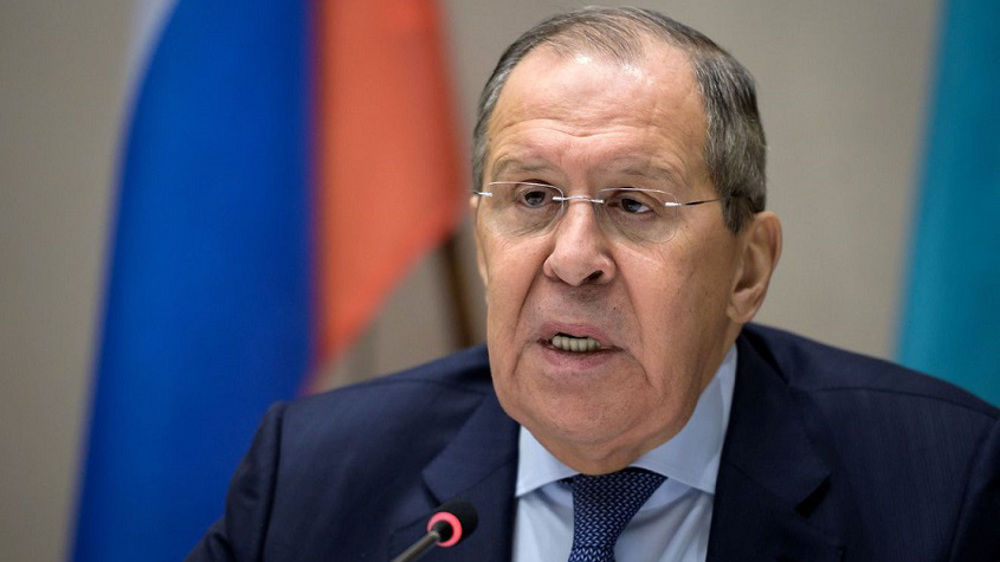
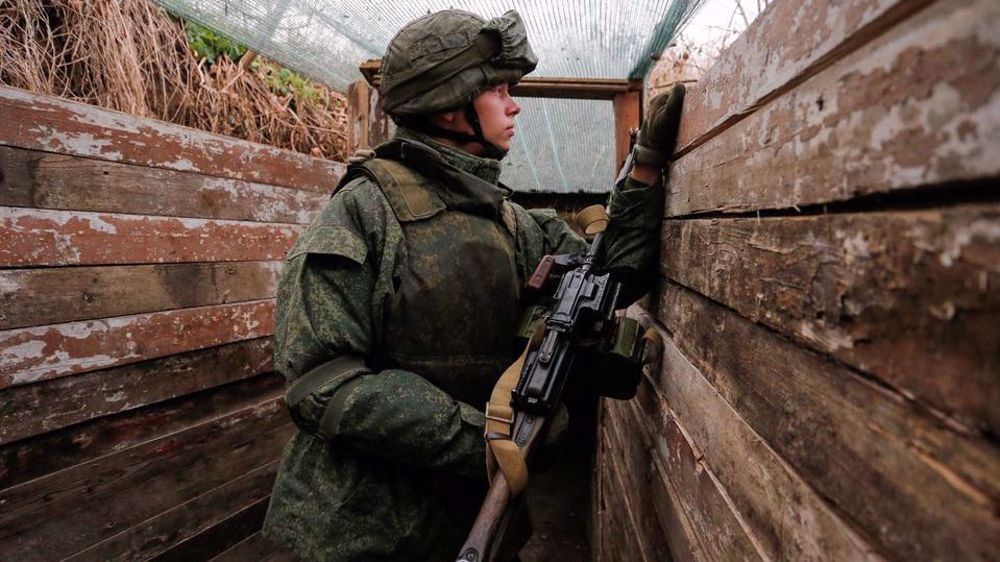

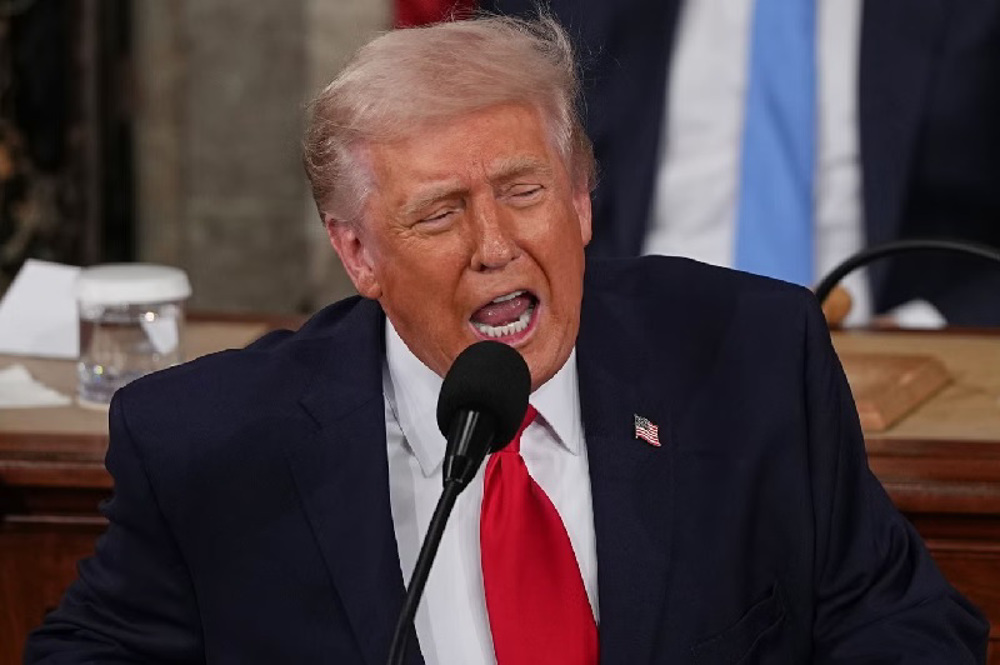
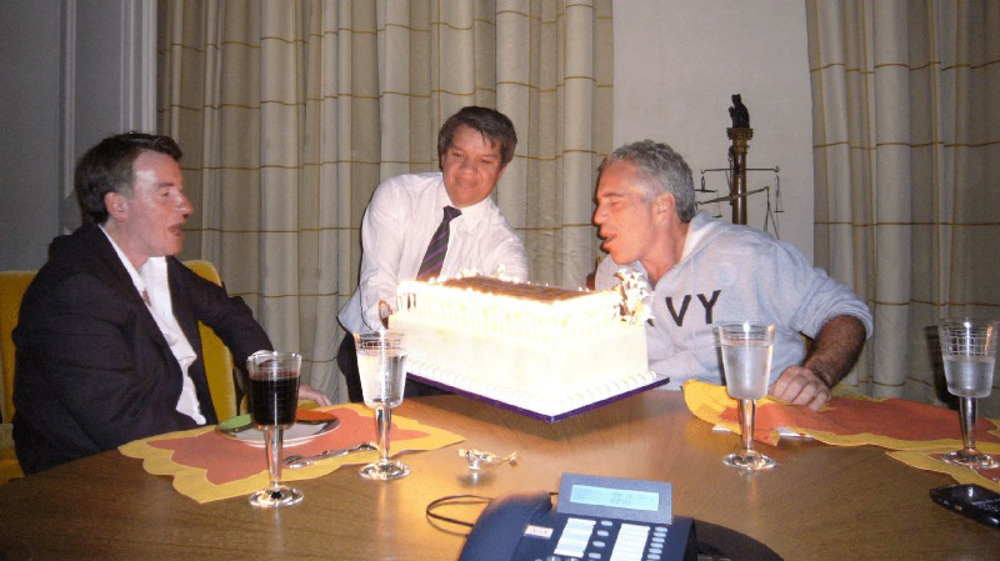




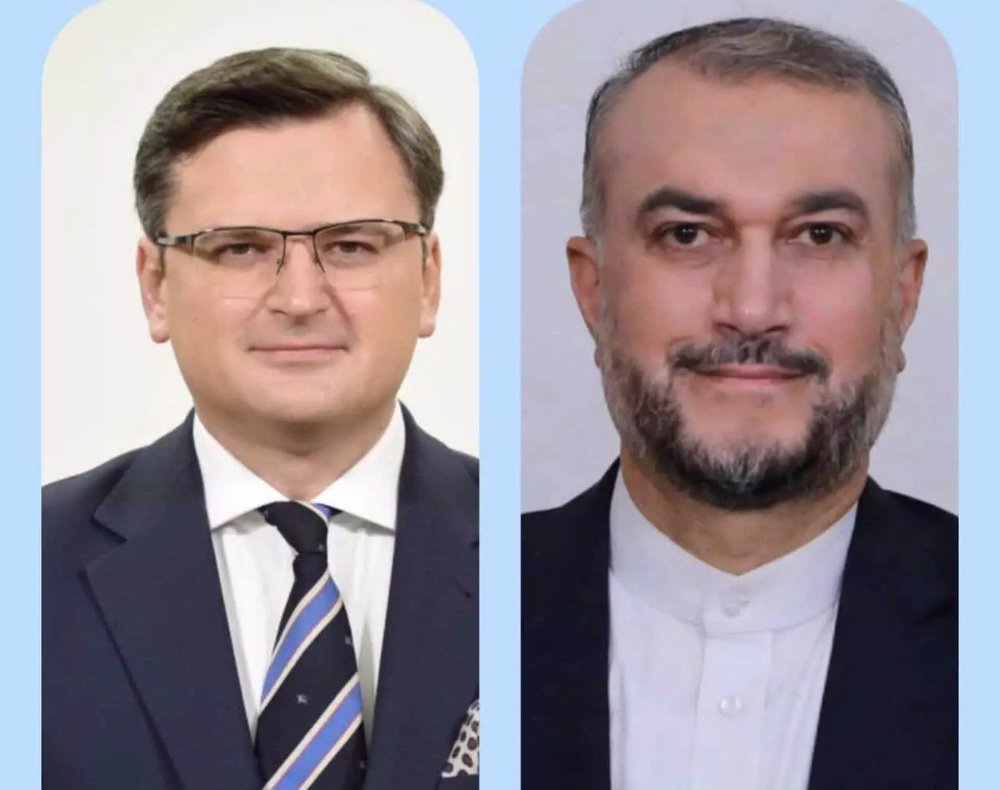
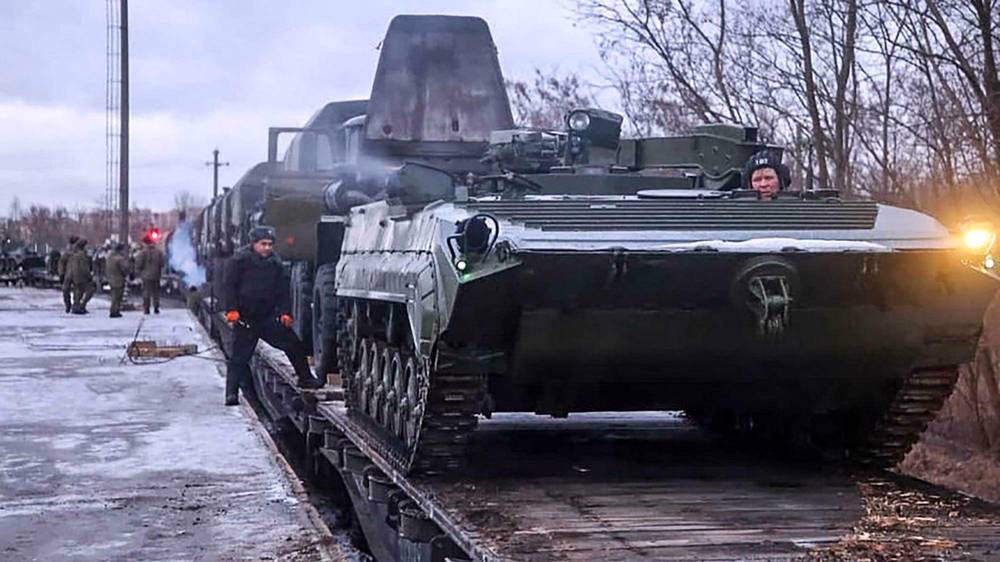
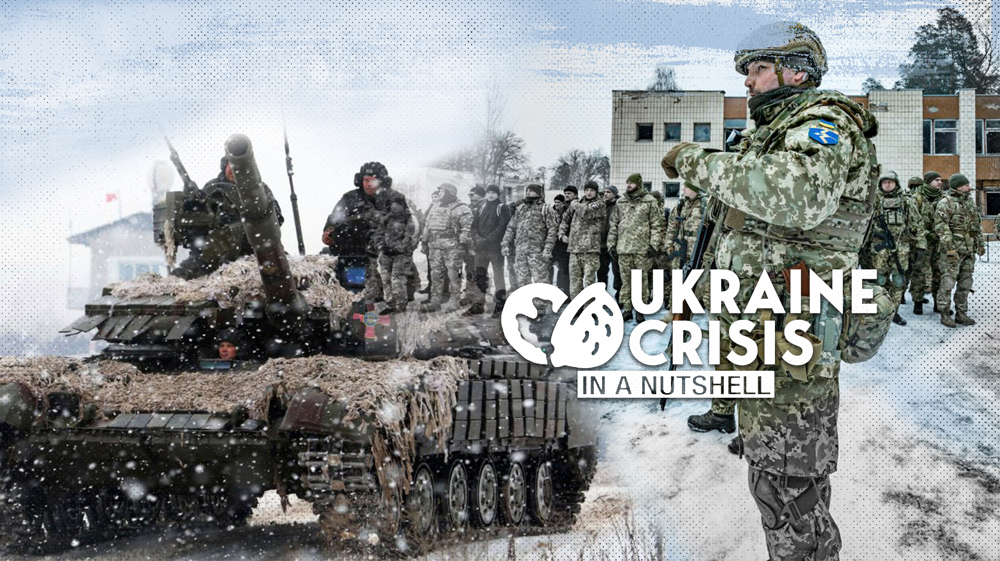
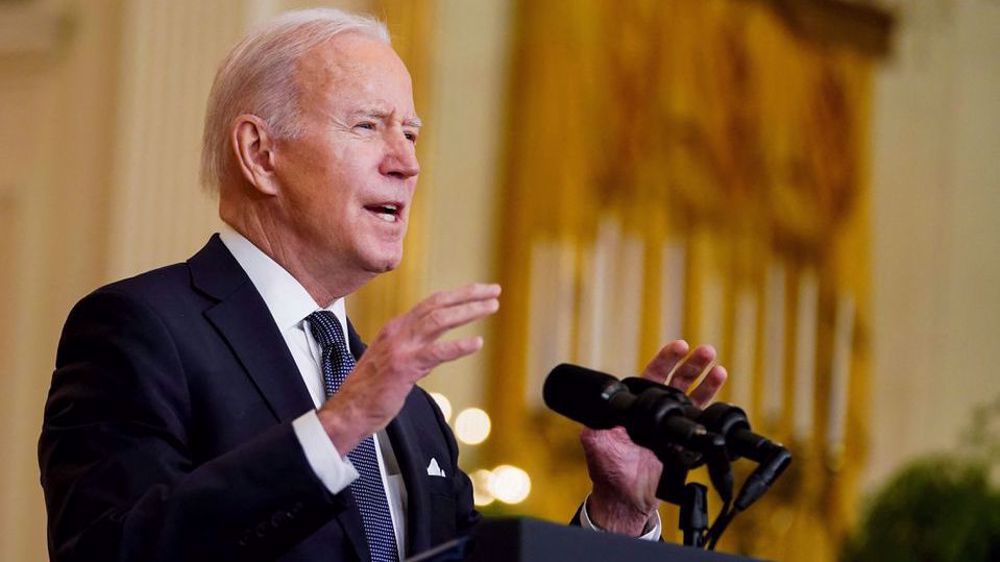
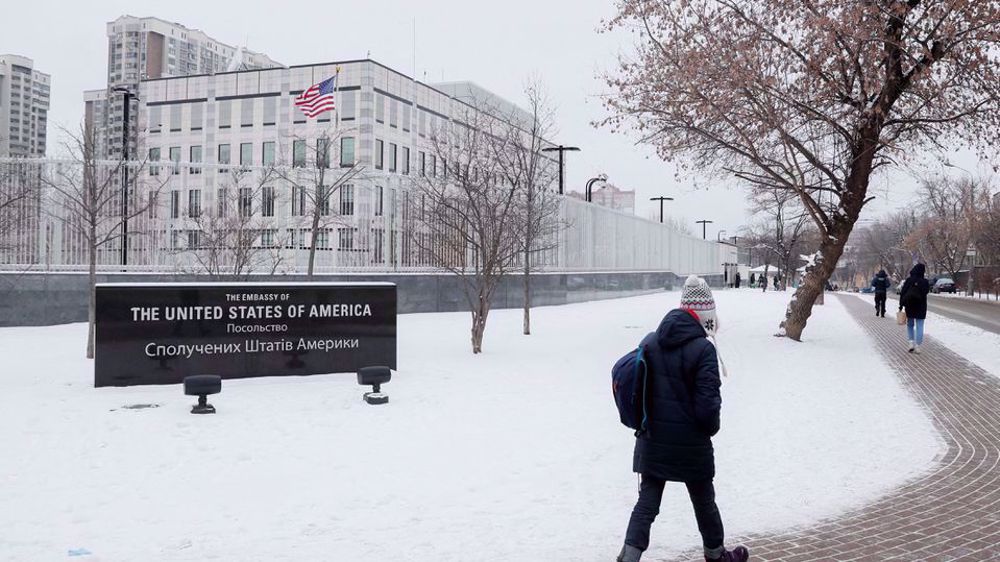
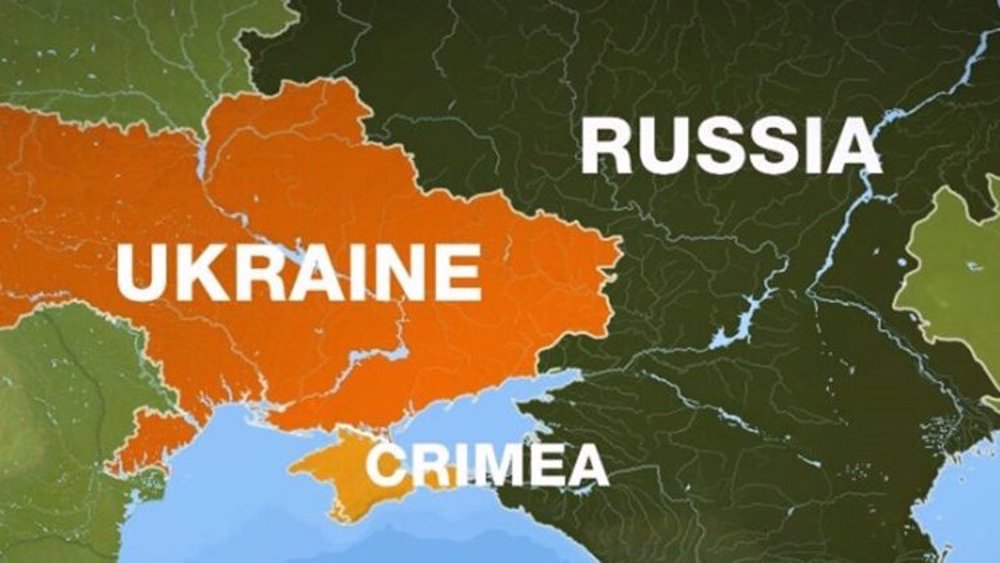

 This makes it easy to access the Press TV website
This makes it easy to access the Press TV website